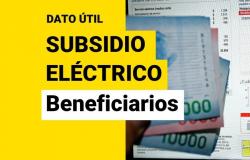At the end of May of this year, the president Javier Gerardo Milei visited a region of the state of California popularly known as Silicon Valley, home to numerous technology companies. There she had interviews with Mark Zuckerberg, CEO of Meta (owner of Facebook, Instagram, WhatsApp and Oculus), with Sam Altman the CEO of OpenAI (owner of ChatGPT), with Sundar Pichai (CEO of Google), and with Tim Cook (CEO of Apple).
The objective of these contacts is transform Argentina into a development pole for companies that are developing artificial intelligence technologies and their applications in all areas. Naturally, good personal relations between business leaders and national authorities are a starting point.
But decisions are not made by company leaders, they are made by financial managers and shareholder committees, therefore, a decision to invest is evaluated based on financial risk in the medium term. And for this, the personal relationships that may exist between people who can have cordial encounters are nothing more than a starting point for conversations.
What can guarantee a growing flow of investments in this area of the so-called knowledge economy is a treaty of guarantees by which these companies have some type of financial benefits and labor relations adjusted to their structures and growth dynamics, a type of regulations that should be similar to the Incentive Regime for Large Investments that is being generated for the development of the gas industry in the Vaca Muerta field in the Cuyo Region. That is to say, promoting foreign direct investment in the knowledge economy may be open to the same objections that are made to this regime regarding extraordinary benefits in the financial, tax and labor spheres.
But the assumption of the knowledge economy is that it can generate an explosive development of investments and secondary effects of these investments in local and national economic life. But the issues are much more complex. Already in 2023 it was held with respect to the State of California, which “The myth of California” it gets cloudier and cloudier. The richest and most populous state in the United States economy (the fifth largest economy in the world by GDP), which has always been the embodiment of the “American dream,” is in crisis.
The increase in housing prices due to the growing location of workers attracted to these companies, and the cycles of technological products that are shorter cycles and are subject to very intense competition, as well as the dependence on some inputs that are produced monopolistic by some countries, puts the income of these companies at constant risk, which makes the parent companies of these companies look for places with lower taxes and this happened in the case of the state of California “…when Elon Musk, who sold a estimated $23 billion in Tesla stock in 2022, moved its residence and headquarters to Texas. Those who are rich in California pay more than 13% on capital gains The Treasury will receive $29.5 billion in taxes this year, almost. 10% less than expected in 2022.”
And at the end of 2023, the State of California had an extraordinary deficit. In a report, the CBS news network commented that “California faces a record budget deficit of $68 billion, state officials announced Thursday, forcing Democratic Governor Gavin Newsom to make difficult decisions…The most populous state in the country “, with an economy that is the fifth largest in the world, has been struggling since last year due to rising prices of most goods and services and how the US government has been trying to control it.”
The assumption of bringing a specific economic area, of extraordinary benefits, given that this will generate a rapid increase in these companies, which will be transferred by the payment of taxes for the good salaries that they can pay to society in general, is an assumption that In the political economic thought of Latin America it is known as developmentalism, and it has a long history of application and failures since the 1960s.
That is to say, it can happen, and has happened, that the prosperity of a very specific business sector with a global market with few suppliers is consistent with the enormous surrounding economic decline, which is what is currently happening in the state of California in the United States of America.
Presidents cannot escape the spell of exceptional growth in dynamic areas of the economy and so on, however, what drives the economic growth of a complex society is basically income policy. Anything else will be subsidiary to it, and it will be of no use to have high-quality and cutting-edge technological products in the world market if this does not have a decisive impact on income policy, but that is not what is happening with this type of Projects.
Master in Communication, Culture and Media Speeches. (UNLAM). Graduate in Social Communication (UNLAM). Professor in History. Writer. Published book “Fake News: All news is false until proven otherwise”
#Argentina






